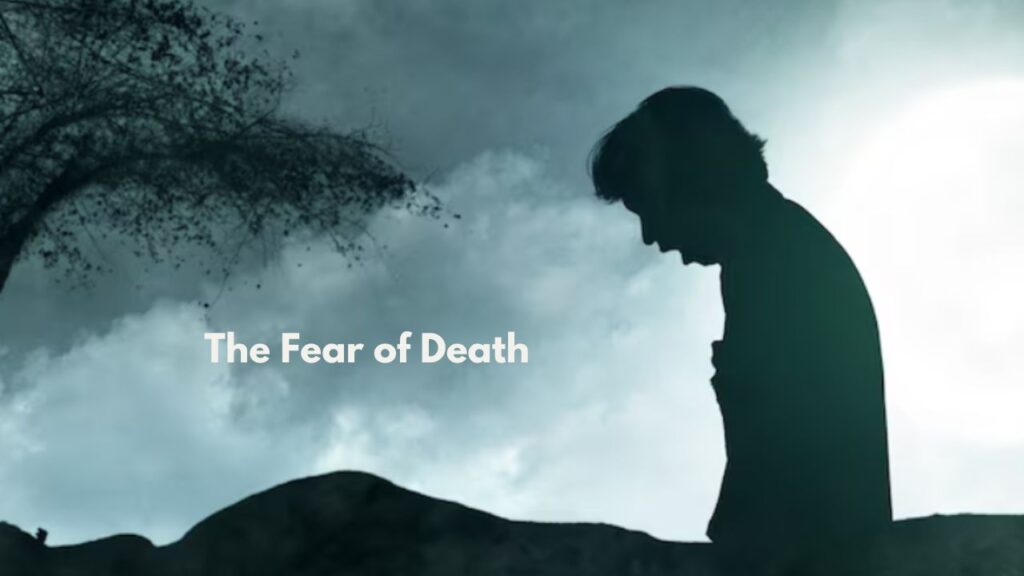Going to college often brings along an uninvited companion – fear. This can be a crippling barrier to your academic success and personal growth. To help you combat this, we turn to the timeless wisdom of Napoleon Hill, particularly his renowned work, ‘Think and Grow Rich’. This book not only presents a profound philosophy but also hands you the toolkit for mastering fear, a vital skill for every college student.
Let us delve into the process of recognising and overcoming the three principal enemies lurking in our minds: indecision, doubt, and fear. As we explore these compelling insights, you’ll be invited to examine your own psyche, to identify and uproot any traces of these destructive forces.
Are you ready to face these fears and transform them into stepping stones towards success? If so, read on to embark on this journey of self-discovery and growth.
The Fear of Poverty

In the vibrant journey that is college life, poverty is a fear that often haunts students. According to Hill, this fear hampers achievement and leads to indecision, doubt, and procrastination, all obstacles to your success as a student.
The antidote to this fear, he suggests, lies in fostering a strong desire for riches, not solely in the monetary sense, but also encompassing spiritual, mental, and material wealth. This desire serves as the starting point on the path that leads away from poverty and towards a fulfilled life.
The fear of poverty, with its destructive power, can lead to a lack of ambition, an acceptance of poverty, and the inability to demand more from life. But remember, the only requirement to shift from this fearful state of mind is within your control – your mindset.
Hill’s philosophy stresses that fearing poverty will attract it into your life, and likewise, demanding riches will direct you towards achieving them. The state of poverty or wealth, then, is merely a reflection of our state of mind. Understanding and mastering this concept is a crucial skill for college students, as it directly impacts your academic success and the course of your future life.
Arm yourself with the right mindset, and no fear can derail your journey towards success. After all, the road to wealth, in all its forms, is open to all who have the courage to demand it.
The Fear of Criticism

One often overlooked yet incredibly impactful factor that can influence the journey is the fear of criticism. This fear can hamper students’ growth, limit their creativity, and suppress their individuality.
The fear of criticism tends to rob individuals of their initiative, destroy their imaginative power, and hinder their self-reliance. It’s this fear that often causes students to shy away from voicing their ideas in class or taking the lead in group projects. This dread of criticism can undermine confidence and ambition, crucial traits needed for success in college and beyond.
However, this fear, like all fears, can be overcome. As Hill suggests, it requires the courage to embrace your individuality, express your opinions confidently, and accept constructive criticism as a stepping stone towards growth and improvement.
Taking a bold step to master this fear can not only enhance your academic performance but also transform your overall college experience, making it a truly enriching journey of personal growth. By learning to handle criticism constructively, you can create a robust foundation for future success.
The Fear of Ill Health

College students are constantly faced with pressures that may lead to the fear of ill health. Napoleon Hill in his influential book ‘Think and Grow Rich’, points out how this fear, if left unaddressed, can have detrimental effects on a person’s life.
Hill suggests that the fear of ill health often manifests in forms such as hypochondria, excessive worry about potential diseases, or even the avoidance of physical activities. These symptoms can hamper students’ daily activities and academic progress, leading to a heightened state of stress and anxiety.
However, it’s important to understand that our mind has a powerful influence over our body. Negative thoughts can indeed cause physical symptoms of illness. This is particularly relevant in a challenging environment like college, where stress levels can run high.
Mastering the fear of ill health involves maintaining a positive mindset, embracing healthy lifestyles, and steering clear of negative suggestions about health. A balanced diet, regular physical exercise, adequate sleep, and a positive attitude towards life are crucial elements to conquer this fear.
By acknowledging and addressing this fear, college students can significantly enhance their well-being and performance. It paves the way for a more rewarding and less stressful college experience. After all, a healthy mind and body are the fundamental pillars of a successful academic journey.
The Fear of Loss of Love of Someone

Navigating relationships is a significant aspect of college life, and it’s crucial for students to understand the emotional challenges it can present. The fear of loss of love is rooted in human history, originally related to our ancestors’ habits of competing for and guarding partners.
Today, while physical force is no longer a common factor, the fear of losing a loved one’s affection persists. This fear can be particularly destructive, causing immense emotional stress and even leading to irrational behaviours.
Key symptoms of this fear include jealousy, excessive fault-finding, and unwise decision-making such as reckless gambling or overspending to ‘buy’ affection. These can not only hamper interpersonal relationships but also personal growth and academic success for college students.
To thrive during their college years, students must work on mastering this fear. Developing trust, cultivating open communication, and promoting mutual respect in relationships are effective ways to address this fear. At the same time, students should focus on fostering self-love and self-reliance, reinforcing their emotional stability and resilience.
By conquering this fear, college students can ensure healthier relationships, emotional well-being, and overall, a more fulfilling college experience.
The Fear of Old Age

College students often overlook the concept of ageing, focusing instead on immediate challenges and youthful experiences. However, understanding and addressing future concerns like the fear of old age can significantly enhance their life trajectory. This topic is insightfully covered by Napoleon Hill in his transformative book ‘Think and Grow Rich’.
Hill identifies two main sources of the fear of old age: the dread of poverty and the apprehension arising from age-old narratives about the less desirable aspects of growing old, such as declining health and sexuality. The fear of loss of freedom, both physically and economically, also feeds into the anxiety about ageing.
Symptoms of this fear include developing an inferiority complex around middle age, routinely describing oneself as “old” once reaching a certain age, and suppressing one’s initiative and creativity, falsely attributing it to ageing. Some people may even resort to dressing or behaving youthfully in an attempt to appear younger, often inviting ridicule instead.
Mastering this fear can greatly impact college students’ mindset towards their future. They should realize that ageing can bring wisdom and a better understanding of the world. Instead of fearing old age, students should start preparing for it financially and emotionally from a young age. They should also respect the natural ageing process, understanding that every stage of life has its beauty and value. By doing so, they can ensure a more comfortable and fulfilling life in their later years, eliminating the fear of old age.
The Fear of Death

In the transformational book ‘Think and Grow Rich’, Napoleon Hill illuminates a key fear – the fear of death. While seemingly remote for most college students, understanding and addressing this fear now can contribute significantly to a more fulfilling life.
Hill explains that fear of death often arises from religious teachings and uncertainty about the afterlife, often depicted in frightening and overwhelming terms. The lack of concrete knowledge about what comes after death has historically opened up space for manipulation and control over individuals.
Yet, in the current age of scientific advancement and widespread higher education, the fear of death is losing its grip. University-educated individuals tend not to be as easily swayed by doomsday depictions of the afterlife. Through their exposure to sciences such as biology, geology, and astronomy, they’ve learned to confront such fears with reason and critical thinking.
Key symptoms of fear of death include persistent thoughts of dying instead of enjoying life, often due to a lack of purpose or meaningful occupation. According to Hill, an effective antidote to the fear of death is a strong desire for achievement, supported by a commitment to useful service to others.
For college students, understanding and addressing the fear of death is essential. Recognizing that life and energy cannot be destroyed, but only transformed, can shift their perspective on death. With such a mindset, death becomes merely a transition, a part of life’s journey, not something to fear. This shift in perspective, as Hill proposes, can help students live more freely, embracing life’s possibilities instead of fearing its inevitable end. Mastering fear, especially fear of death, is a step towards a more fulfilled and fearless life.
Armed with this knowledge and understanding, students can shift their perspectives, turning fears into stepping stones for personal growth, academic success, and a rewarding college experience.




